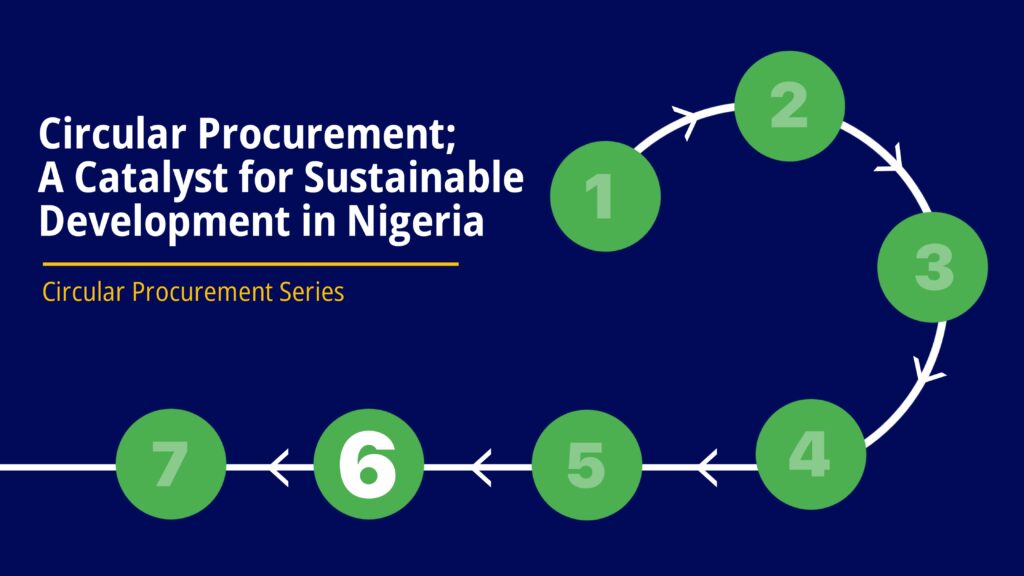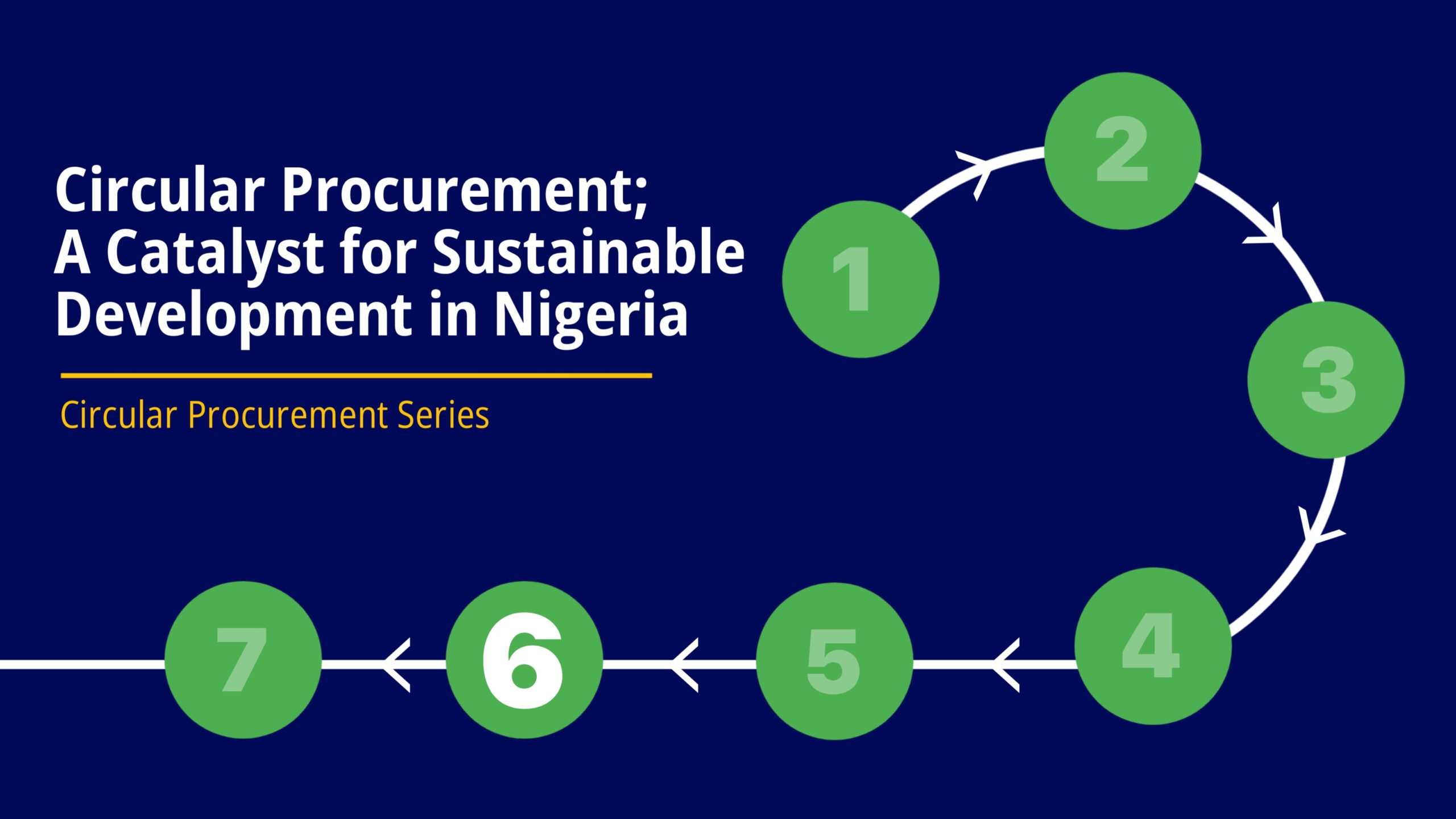Circular Procurement: A Catalyst for Sustainable Development in Nigeria

Circular procurement, the strategic purchase of goods and services that reduce or eliminate waste, is emerging as a key market development approach for the circular economy. In Nigeria, where economic growth is intertwined with the challenges of waste management and resource conservation, embracing circular procurement is not just an environmental imperative but also holds potential for broader economic development. This is because circular business models emphasise closing material loops, which is often most efficient to execute within small geographical spaces. Consequently, from individual choices to organisational strategies and government initiatives, each level of procurement plays a pivotal role in shaping the market.
Individuals Encouraging Entrepreneurs
Building circular business models is neither easy nor cheap yet many entrepreneurs in Nigeria are moving mountains to building viable businesses. This is particularly difficult because in Nigeria, many consumers are price-sensitive, making it difficult for them to prioritise sustainable choices over more affordable alternatives. While price sensitivity is a reality, supporting small businesses dedicated to circular practices contributes to their growth, encouraging innovation and establishing a foundation for a circular economy. The impact of individual choices on market development is twofold. First, it gives circular businesses much needed visibility. Secondly, it sets up emerging entrepreneurs for growth as they are able to develop their product and services working directly with customers.
Organisations Setting the Circular Agenda
Organisations are instrumental in driving circular procurement. In particular, large buyers help to create a stable demand for renewable and recycled goods. This is most notable in areas such as purchasing recycled PET in the beverage industry: guaranteed purchasing by large companies enables deeper investment in local recycling facilities. Companies needn’t be large buyers to make an impact: open innovation approaches can also lead to product and business model innovation. This is the case with the Dutch Consul General in Lagos, who searched for ways to soundproof its walls with waste textile applications. In short, circular procurement by organisations produces important market signals, however to take advantage of these signals entrepreneurs must be in a position to meet the demand to produce at scale.
Government: Promoting an Enabling Environment
Because governments are very large buyers, many organisations argue that public procurement is a cornerstone of market development for the circular economy. For example, among case studies collected by the Ellen MacArthur Foundation, is that of Quimper, France, which successfully tendered for the renovation of its railway station using reuse criteria, demonstrating that significant infrastructure projects can be executed using circular principles. The power of the Nigerian government to send similar market signals is no less significant: according to the Nigeria Open Contracting Portal (NOCOPO), Federal and State governments have issued no less than 23,900 tenders valued at more than 1.3 trillion Naira since the portal was established. We hope that in the future the portal may be used as a building block to encourage competitive circular tenders, as the potential is significant.
Circular Procurement in Nigeria: Practical Steps
Developing circular procurement strategies in Nigeria requires an approach that addresses both demand and supply-side challenges. Luckily, there are practical steps that we can take as individuals and organisations:
- As an individual: Stay informed about how you can make more circular buying decisions: The Circular Procurement Guide, published by the Circular Business Platform features circular start ups and SMEs across diverse sectors including agriculture, energy, fashion, and health and provides a list of recyclers. This guide is a starting point for anyone who wants to think about how they can work with businesses to reduce waste. Provide honest feedback to companies so they can continue to improve and serve the market. ,
- As an organisation: Review your procurement policies and consider how you may use tools such as open innovation or practical purchasing criteria to reduce waste and encourage local research and innovation.
- As a public institution: Consider making open calls in public tenders to search for producers that have capacity to develop and deliver more circular products. This can include areas such as uniform purchases, services and infrastructure.
It may not be easy to build the market for the circular economy, however we all have a role to play. Working to understand and encourage the growth of the market by making intentional buying decisions is a first step. Sharing the outcomes of these processes so the market can learn and build is an essential second. The call to action is clear, we must start now.



